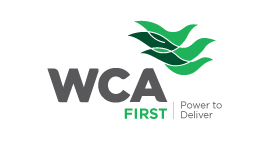The Twelve Steps Alcoholics Anonymous
Generally, AA participants should aim to make full amends as early as possible. But only as long as it causes no additional harm to the people you’re addressing. Mark’s key responsibilities include handling day-to-day maintenance matters and oversees our Environment of Care management plan in conjunction with Joint Commission and DCF regulations. Mark’s goal is to provide a safe environment where distractions are minimized, and treatment is the primary focus for clients and staff alike.
- If we had not developed a relationship with a Higher Power, we wouldn’t now have the faith and trust that we definitely need to work Step Nine!
- You can’t change the past, but you can take responsibility for it, and that changes everything.
- Step 1 involves admitting you are powerless over drugs and alcohol and that your life is out of control.
What If They Hurt You Too?
You demonstrate an awareness of your past actions and their consequences and a heartfelt commitment to mitigating these harms. By successfully engaging with Step 9, you take decisive strides towards individual healing and re-establishing the connections that may have been strained due to past actions. The path of sobriety is not a solitary journey, and Step 9 focuses on the importance of mending broken relationships and seeking collective healing. Indirect amends is when you do not make a face-to-face confession of your wrongs against someone. This occurs when you decide to do something like write a letter that you decide not to send because of the harm it may cause the individual to whom it is addressed.
- Essentially, it means making a radical shift in the way you live and sticking to that.
- Then, the next time around, make sure to make good on your word.
- It is another rewarding part of our recovery journey and brings us closer to the gift of freedom.
- Living amends demonstrate personal growth and commitment to change in recovery.
We and our partners process data to provide:

The higher power can be God, some other supreme being, or anything that has a lot of meaning for you, such as art, music, nature, humanity, or science. Alcoholics Anonymous (AA) was founded in Akron, Ohio, in 1935, by two alcoholics – https://www.giulianini.net/alcohol-intolerance-tests-medical-vs-at-home-kits/ Bill W, a stockbroker from New York, and Bob S, a surgeon from Akron. They met through the Oxford Group, a non-alcoholic fellowship that promoted spiritual living.
7 Help for Drug & Alcohol Use
- However, some people are afraid of making amends because they don’t know what to say, how to start, or how others are going to respond.
- Not all forgiveness has to be made in person or on the phone (voiced).
- Begin with a sincere apology, being specific about the wrongs committed instead of making vague statements of guilt.
This can occur in person, by phone, email, or any other form of communication. With the realization of how deeply we have hurt others through our Drug rehabilitation addiction, we understand that amends must be made. In this step, we attempt to remove some of the debris created in the past through our actions. This quick guide is here to help you approach Step 9 with honesty, humility, and self-compassion. Making amends in recovery is not a one-size-fits-all process.

Living amends involve ongoing actions that demonstrate a commitment to recovery and behavioral transformation. Unlike direct or indirect amends, which might be one-time actions, living amends involve actively demonstrating changed behavior over time to show accountability for past actions. This can include improving relationships through positive interaction, such as spending more time with loved ones. Step 9 centers on forgiveness and restoration, living amends confronting past actions directly rather than avoiding them. This step emphasizes making direct amends wherever possible, acknowledging harm caused and taking actions to rectify mistakes. It builds on the previous step in which you made a list of the people who were harmed by your substance abuse.








